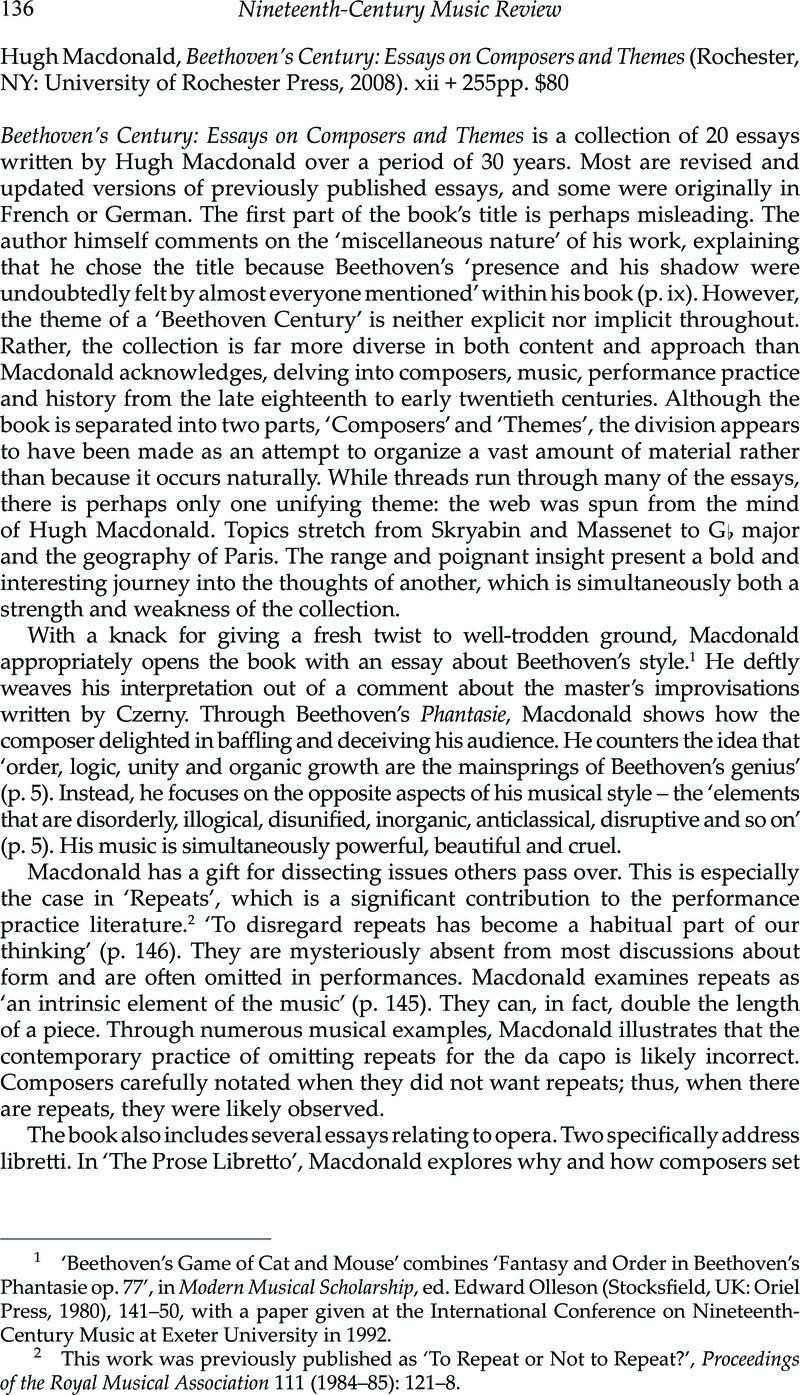No CrossRef data available.
Published online by Cambridge University Press: 13 April 2011

1 ‘Beethoven's Game of Cat and Mouse’ combines ‘Fantasy and Order in Beethoven's Phantasie op. 77’, in Modern Musical Scholarship, ed. Olleson, Edward (Stocksfield, UK: Oriel Press, 1980), 141–50,Google Scholar with a paper given at the International Conference on Nineteenth-Century Music at Exeter University in 1992.
2 This work was previously published as ‘To Repeat or Not to Repeat?’, Proceedings of the Royal Musical Association 111 (1984–1985): 121–8CrossRefGoogle ScholarPubMed.
3 ‘The Prose Libretto’ originally appeared in Cambridge Opera Journal 1 (1989): 155–66Google Scholar.
4 These were published as ‘Dr. Mephistopheles: Doctors and Devils in the Librettos of Barbier and Carré’, The Journal of Musicological Research 13 (1993): 67–78, andGoogle Scholar‘The Outre-Manche in 19th-Century French Opera’, D'un Opéra l'autre: Hommage à Jean Mongrédien, ed. Gribenski, Jean, Mussat, Marie-Claire and Schneider, Herbert (Paris: Presses de l'Université de Paris-Sorbonne, 1996): 155–62Google Scholar.
5 This essay was published in German, as ‘Berlioz und Schumann’, Schumann Forschungen 6 (1997): 107–23Google Scholar.
6 This article appeared as ‘Paganini in Scotland’ in Nicolò Paganini e suo tempo, ed. Monterosso, Raffaello (Genova: Comune di Genova, 1988): 201–18Google Scholar.
7 This work was written for the San Francisco Symphony's French Music Festival in June and July of 1994.
8 This essay combines a paper about modernisms given at the Royal Musical Association's conference at the University of Nottingham in 2006 with a paper about machine music given at the International Musicological Society's conference in London in 1997.
9 The very public debate between Ellington and one of his chief critics, John Hammond, is well documented. With racially tinged overtones, Hammond accused Ellington of abandoning jazz (i.e. dance music) after Ellington's first Carnegie Hall performance. The leftist had previously criticized Ellington's political standing as well. Tucker, Mark, ed., ‘The Debate in Jazz (1943)’, in The Duke Ellington Reader, ed. Tucker, Mark (New York: Oxford University Press, 1993): 170–73Google Scholar.
10 Duffin, Ross, How Equal Temperament Ruined Harmony (And Why You Should Care) (New York: W.W. Norton, 2007).Google ScholarMacdonald's, paper originally appeared in 19th-Century Music 11 (1988): 221–37Google Scholar.